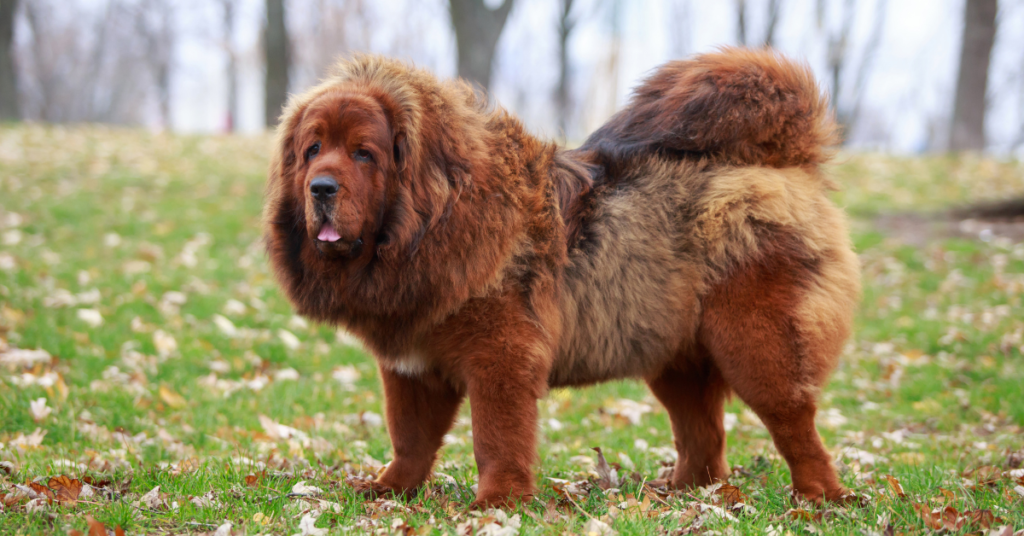The Newfoundland, often referred to as the “Newfie,” is a large, powerful dog known for its gentle and patient temperament. This breed has a long history as a working dog, particularly in water rescues due to its strength, swimming ability, and natural life-saving instincts.
*Disclaimer: This Post May Contain Affiliate Links. This Means That I Receive A Small Commission At No Extra Cost To You Should You Click Through And Make A Purchase. Learn More On My Policy Page
Breed Characteristics
- Breed Category: Working Group
- Size: Large
- Coat Length: Long
- Shedding: Heavy
- Hypoallergenic: No
- Grooming Requirements: High; regular brushing and grooming needed
- Life Span: 8-10 years
- Activity Level: Moderate
- Temperament/Personality: Gentle, patient, loyal
- Intelligence: High
- Trainability: High; responds well to training
- Space Requirement: Large; needs ample space to move comfortably
- Compatibility with Children & Other Pets: Excellent; very good with children and other pets
- Health Issues: Prone to hip dysplasia, heart problems, and obesity
- Nutrition Needs: High-quality diet with balanced nutrients
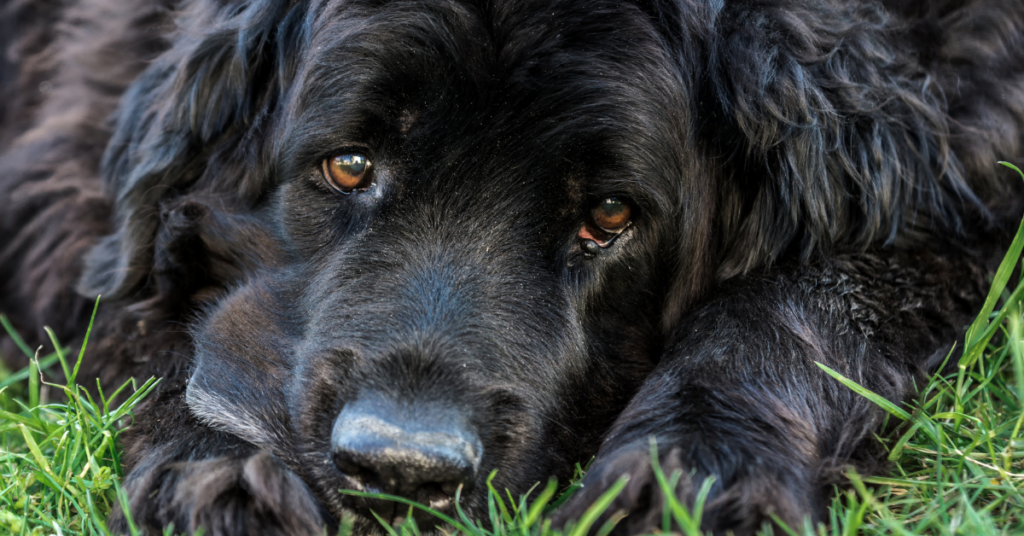
Origin and History
The Newfoundland originated on the island of Newfoundland, Canada, where it was used by fishermen to haul nets, pull carts, and perform water rescues. The breed is believed to have developed from large working dogs brought to the island by European fishermen in the 17th century. The Newfoundland quickly became known for its strength, endurance, and ability to work in harsh conditions. The breed’s natural swimming ability and life-saving instincts made it an invaluable asset to fishermen and sailors. The Newfoundland was officially recognized by the American Kennel Club (AKC) in 1886.
Appearance and Physical Characteristics
The Newfoundland is a large, powerful dog, typically weighing between 100 to 150 pounds and standing 26 to 28 inches tall at the shoulder. The breed has a thick, water-resistant double coat that comes in various colors, including black, brown, gray, and Landseer (white with black markings). The Newfoundland’s head is broad and massive, with a short muzzle and expressive eyes that reflect the breed’s gentle nature. The breed’s ears are small and lie close to the head, while the tail is long and strong, often carried low.
Temperament and Personality
The Newfoundland is known for its gentle, patient, and loyal temperament. The breed is often referred to as a “gentle giant” due to its calm and affectionate nature. Newfoundlands are excellent with children and are known for their protective instincts, making them wonderful family pets. The breed is also good with other animals, including other dogs and pets. Despite their size, Newfoundlands are generally calm and well-behaved indoors, although they do need regular exercise to stay healthy and happy.
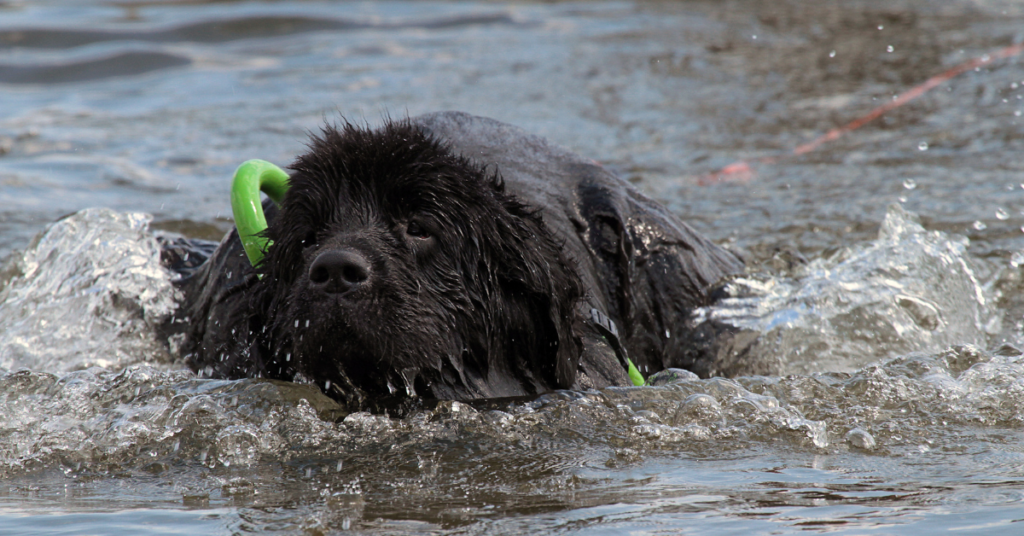
Intelligence and Trainability
The Newfoundland is an intelligent breed that is highly trainable. The breed responds well to positive reinforcement training methods and is eager to please its owner. Newfoundlands excel in various tasks, particularly those related to water rescue and retrieval. Early training and socialization are important to ensure the Newfoundland develops into a well-behaved and confident adult. The breed’s gentle nature and willingness to work make it an excellent choice for families and individuals looking for a loyal and dependable companion.
Compatibility with Children and Other Pets
Newfoundlands are known for their exceptional compatibility with children and other pets. The breed’s gentle and patient nature makes it an ideal family dog, particularly for families with young children. Newfoundlands are protective of their family members and are known to be very tolerant of children’s behavior. The breed also gets along well with other dogs and pets, making it a good choice for multi-pet households.
Health and Nutrition
The Newfoundland is generally a healthy breed, but it is prone to certain health issues, including hip dysplasia, heart problems, and obesity. Regular veterinary check-ups, a balanced diet, and proper exercise are essential to maintaining the breed’s health. Due to their large size, Newfoundlands require a diet that is rich in nutrients and provides the energy needed to support their active lifestyle. Monitoring their weight is important, as obesity can lead to additional health problems. The breed’s thick coat requires regular grooming to prevent mats and keep it in good condition.
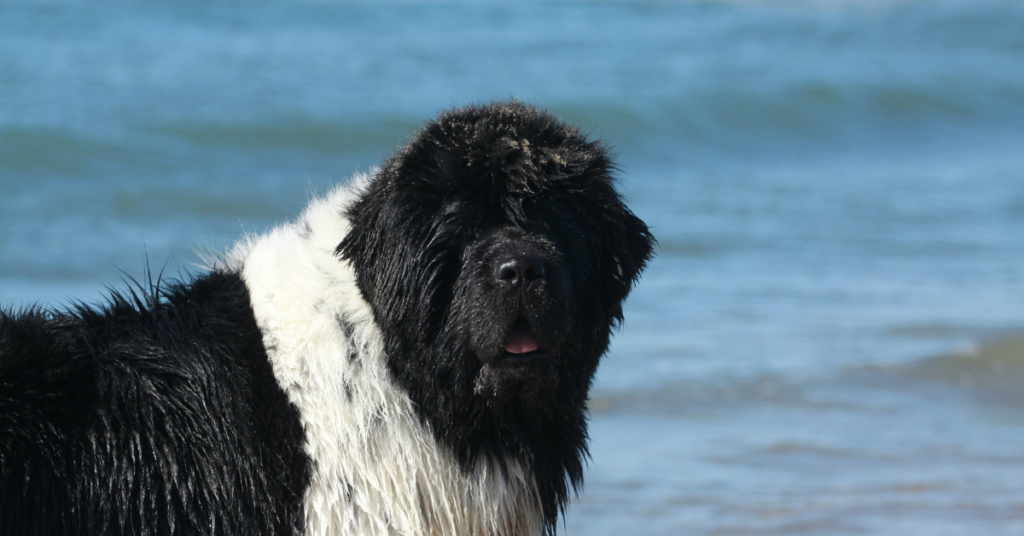
Exercise and Activity Level
Newfoundlands have a moderate activity level and require regular exercise to stay healthy and happy. The breed enjoys activities that involve water, such as swimming and retrieving, and they excel in water rescue and other water-related tasks. While Newfoundlands are generally calm indoors, they do need daily exercise to prevent boredom and maintain their physical and mental health. Providing them with opportunities to engage in water activities, as well as regular walks and playtime, is important to keep them happy and healthy.
Grooming Needs
The Newfoundland’s thick, water-resistant double coat requires regular grooming to keep it in good condition. The breed sheds heavily, particularly during shedding seasons, and regular brushing is needed to remove loose hair and prevent mats. Bathing should be done as needed to keep the coat clean, and routine grooming tasks such as dental care, ear cleaning, and nail trimming are also important to maintain their overall health. Due to their large size, regular grooming can be a time-consuming task, but it is necessary to keep the breed looking and feeling its best.
Training and Socialization
Early training and socialization are crucial for the Newfoundland. The breed is intelligent and eager to please, making it responsive to training. Socializing them with other dogs, people, and various environments helps them develop into well-rounded and confident adults. Positive reinforcement training methods work best with this breed, as they respond well to praise and rewards. The breed’s gentle nature and willingness to work make it an excellent choice for families and individuals looking for a loyal and dependable companion.
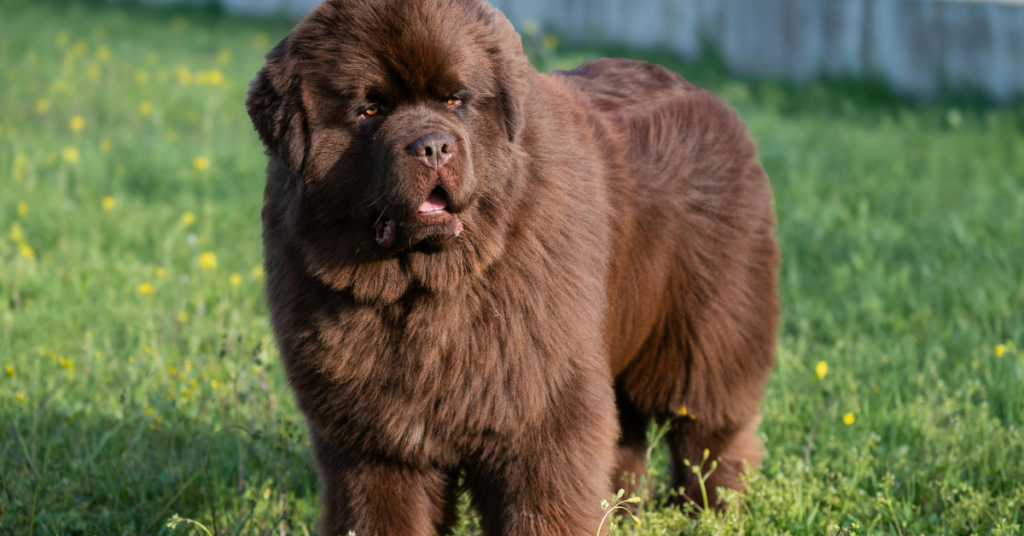
Famous Newfoundlands
The Newfoundland has been featured in various books, movies, and historical accounts. One famous Newfoundland is “Seaman,” the dog that accompanied explorers Lewis and Clark on their expedition across the United States in the early 1800s. The breed’s bravery and loyalty have made it a favorite in literature and history.
Conclusion
The Newfoundland is a gentle, loyal, and powerful breed that makes an excellent companion for families and individuals alike. With proper grooming, training, and care, a Newfoundland can be a loving and dependable member of the family. If you’re looking for a breed that combines strength, intelligence, and a gentle nature, the Newfoundland may be the perfect choice for you.


